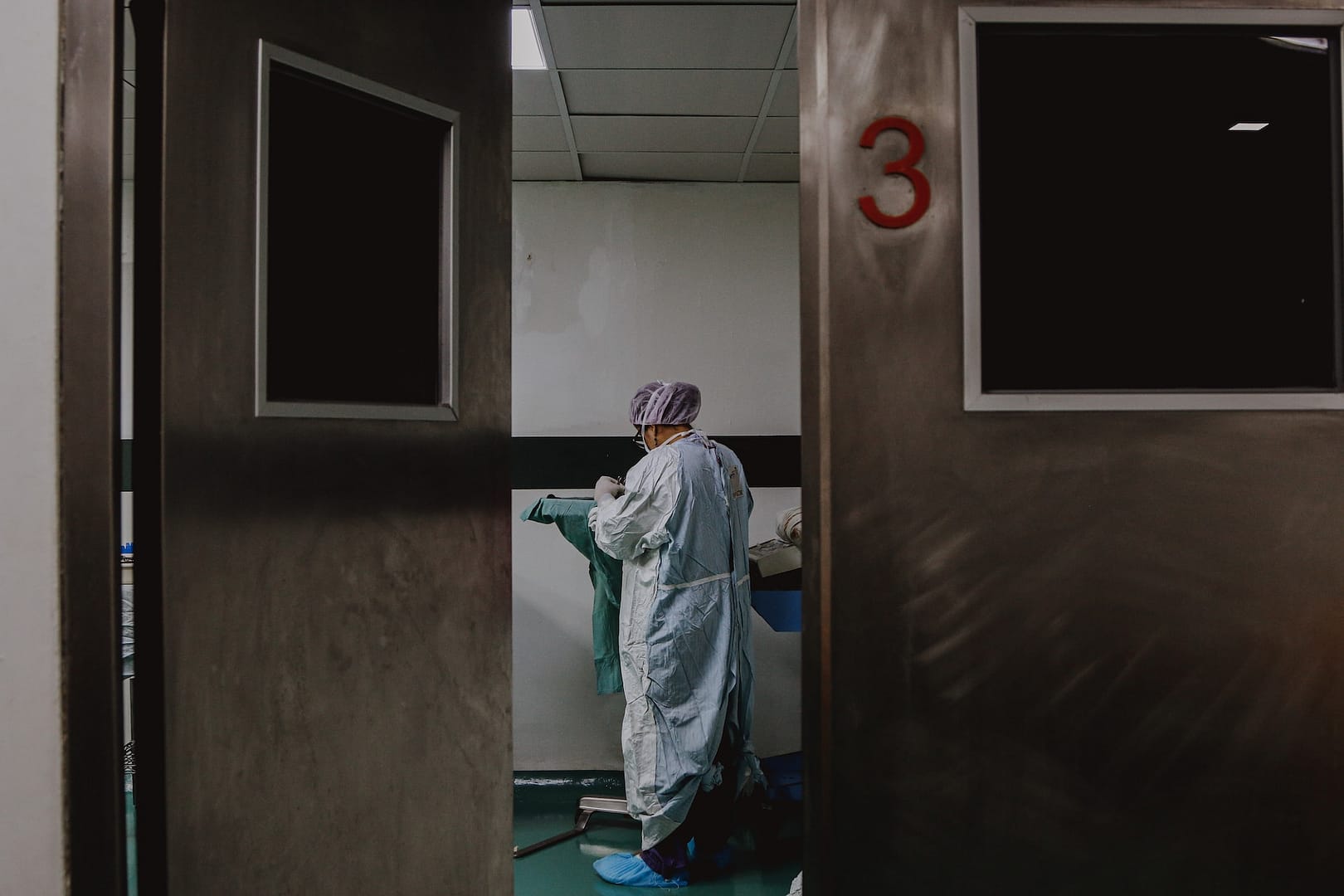In the realm of medical care, time is of the essence. The impact of delayed treatment on clinical negligence cases cannot be overstated. When healthcare providers fail to promptly diagnose and treat patients, the consequences can be dire. Delayed treatment not only affects the health and well-being of patients but can also lead to complex legal battles in the form of clinical negligence cases. In this article, we will explore the far-reaching consequences of delayed treatment, examine whether delayed treatment amounts to medical negligence, delve into the legal implications, specifically within the context of the United Kingdom, and understand the process of making a clinical negligence claim with National Claims.
The Consequences of Delayed Treatment
Imagine you’re not feeling quite yourself. You’ve been experiencing persistent abdominal pain, and it’s causing you undue distress. You decide to seek medical help, hoping for a quick diagnosis and resolution of your discomfort. However, in this hypothetical scenario, the healthcare system experiences delays at various levels, leading to postponed appointments, diagnostic tests, and, ultimately, the treatment you urgently require.
Impact on Health
First and foremost, delayed treatment can have a profound impact on the health and well-being of patients. In the case of medical conditions where time is a critical factor, such as certain types of cancer or acute infections, every passing day can be a matter of life and death. Consider a patient with a suspicious lump who has to wait weeks for a biopsy due to an overwhelmed healthcare system. The delay may allow a potentially treatable cancer to progress to an advanced stage, severely compromising the patient’s chances of survival.
Emotional Toll
The emotional toll of delayed treatment is often underestimated. Patients and their families are left in a state of uncertainty, anxiety, and distress as they wait for answers and relief. The stress of not knowing what is wrong or when treatment will commence can exacerbate the patient’s condition and significantly impact their mental and emotional well-being.
Financial Strain
In addition to the health and emotional consequences, delayed treatment can also lead to financial strain. Patients may incur additional medical expenses as their condition worsens, often requiring more complex treatments or surgeries than would have been necessary had timely intervention occurred. Moreover, they may miss work or even lose their jobs due to prolonged illnesses, resulting in a loss of income.
Impact on Quality of Life
Even when delayed treatment does not result in catastrophic health outcomes, it can still have a significant impact on a patient’s quality of life. Chronic conditions that go untreated or are poorly managed can lead to persistent pain, discomfort, and limitations in daily activities. This can affect not only the patient but also their loved ones who may need to provide care and support.
Is Delayed Treatment Medical Negligence?
The term “medical negligence” is one that raises significant ethical and legal questions. To determine whether delayed treatment constitutes medical negligence, it is essential to understand the criteria and standards that healthcare professionals are expected to meet.
In the United Kingdom, as in many other countries, healthcare providers are held to a standard of care. This means that they are expected to provide a level of care and treatment that a reasonable, competent healthcare professional in their position would provide. When a healthcare provider falls below this standard and causes harm to a patient, it may be considered medical negligence.
Delayed treatment can indeed be viewed as medical negligence if it meets certain criteria:
Breach of Duty
A fundamental element of medical negligence is a breach of the duty of care owed by the healthcare provider to the patient. When a patient seeks medical attention, they place their trust in the hands of the healthcare professional. If the healthcare provider fails to take reasonable steps to diagnose and treat the patient in a timely manner, they may be considered to have breached their duty of care.
Causation
Causation is another critical aspect in determining medical negligence. To establish that delayed treatment amounts to negligence, it must be proven that the delay directly resulted in harm to the patient. This means that the delay was a substantial factor in causing the patient’s condition to worsen or their prognosis to deteriorate.
Harm
For a claim of medical negligence to succeed, the patient must have suffered harm as a direct result of the delayed treatment. Harm can manifest in various ways, including physical injury, emotional distress, financial loss, or a combination of these factors.
In cases where delayed treatment meets these criteria, it can be legally categorized as medical negligence. However, it is important to note that not all instances of delayed treatment automatically qualify as negligence. Medical professionals may sometimes make genuine errors or face extraordinary circumstances that lead to unavoidable delays.
Legal Implications in the UK
In the United Kingdom, the legal implications of delayed treatment are governed by a complex and evolving body of law. Medical negligence cases arising from delayed treatment are heard in the civil courts, and they require a thorough examination of the facts, expert testimony, and a determination of whether the healthcare provider’s actions or inactions constituted a breach of their duty of care.
Statute of Limitations
In the UK, there is a statute of limitations that sets a time limit within which a claim for medical negligence must be filed. Generally, a patient has three years from the date of the incident or the date when the patient became aware of the negligence to initiate legal proceedings. However, exceptions can apply, particularly in cases where a patient may not immediately realize the full extent of the harm caused by delayed treatment.
Medical Expert Witnesses
Medical negligence cases are highly complex, requiring the expertise of medical professionals to determine whether a breach of duty occurred. In court, medical expert witnesses are called upon to provide their opinions on the standard of care, whether it was breached, and if the breach directly caused harm to the patient. These experts play a crucial role in establishing the elements of a medical negligence claim.
Compensation
If a patient’s claim of medical negligence due to delayed treatment is successful, they may be entitled to compensation. Compensation can cover various forms of damages, including medical expenses, loss of earnings, pain and suffering, and any additional costs incurred as a result of the negligence. The amount of compensation awarded is determined based on the specific circumstances of the case.
Healthcare Provider’s Defense
Healthcare providers and their insurers typically mount a strong defense in medical negligence cases. They may argue that the delay was beyond their control, that they acted in accordance with the standard of care, or that the patient’s condition would not have significantly improved even with prompt treatment. These defenses can make medical negligence cases quite contentious and drawn out.
Making a Clinical Negligence Claim with National Claims
At National Claims, we understand the challenges patients face when they believe they have been victims of delayed treatment leading to medical negligence. We are here to guide you through the process of making a claim, advocating for your rights, and seeking the compensation you deserve.
Initial Consultation: Our journey with you begins with an initial consultation. During this discussion, we will collect the details of your case, listen to your concerns, and assess the circumstances of your delayed treatment. We’ll determine whether there is a valid claim for medical negligence.
Medical Records and Expert Evaluation: To build a strong case, we will request and thoroughly review your medical records. We will consult with medical experts who can provide an informed opinion on whether the standard of care was breached and whether the delayed treatment directly resulted in harm to you.
Support and Compassion: Throughout the entire process, we understand that you may be dealing with emotional and physical challenges. Our team will provide you with the support and compassion you need during this difficult time.

Conclusion
The importance of timely and effective medical treatment cannot be overstated. Patients should be aware of their rights and legal options in cases of delayed treatment, and healthcare providers must strive to maintain the highest standards of care to prevent such delays and potential legal consequences. Ultimately, the impact of delayed treatment on clinical negligence cases serves as a powerful reminder of the critical role time plays in healthcare.
In the United Kingdom, delayed treatment can indeed constitute medical negligence if it meets the criteria of a breach of duty, causation, and harm. Patients who believe they have been victims of delayed treatment leading to medical negligence have legal recourse to seek compensation.
At National Claims, we are committed to helping patients navigate the complex process of making clinical negligence claims. We understand the challenges you face, and we are here to provide you with the support, guidance, and legal representation you need to seek justice and the compensation you deserve. Remember, when it comes to your health and well-being, time is of the essence, and you have the right to receive prompt and appropriate medical care.
Contact us today to get a start on your claim and speak to one of our claims specialists today.
Click below to see why we are one of the most trusted claims management companies in the UK.

We’re proud of our excellent customer reviews
We thrive on delivering exceptional service and ensuring our clients’ satisfaction. Don’t just take our word for it. Check out some of our independent reviews to see what our clients have to say.
Excellent

This firm is excellent, they sorted out my car pay out and injury claim very fast, they always communicate with you all the time.

My accident case was dealt with confidence and with great result of the outcome, especially James kept me informed all the time.

I was very impressed at the way my inquiry was treated. I was listened to attentively and everything I needed to know was explained to me.






